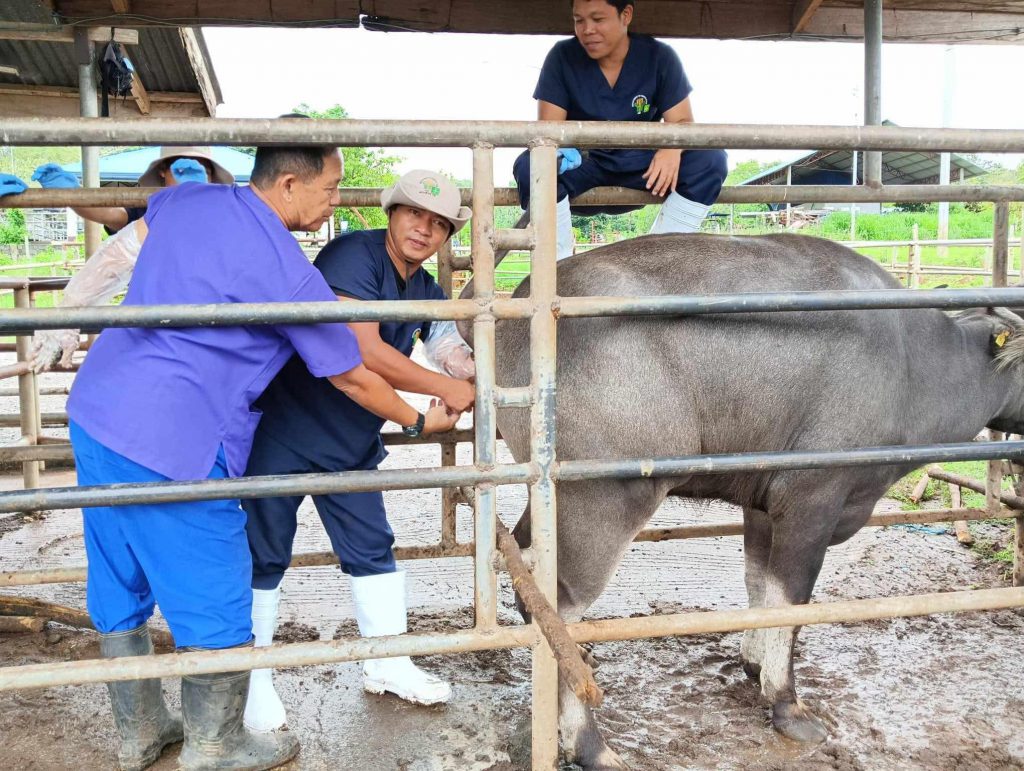Budding carapreneurs from the three cooperatives assisted by DA-Philippine Carabao Center (DA-PCC) in North Luzon gained know-how on animal nutrition and feeding technologies at the Cara-Aralan Farmers’ Field Day (FFD) held today at the DA-PCC at Cagayan State University (DA-PCC at CSU) National Swamp Buffalo Gene Pool and Dairy Buffalo Farm in Baung, Piat, Cagayan.
The participating cooperatives—Integrated Farmers Cooperative (IFC), Apayao Piat Agriculture Cooperative, and Pinoy Bagong Pag-asa Marketing Cooperative—are committed to achieving success in dairying.
The activity, organized by the Knowledge Management Division (KMD) of DA-PCC National Headquarters and Gene Pool (KMD-DA-PCC NHGP) in collaboration with DA-PCC at CSU, was designed to level up carapreneurs’ skills and knowledge to effectively implement new technologies to boost dairy productivity and income.
This event is a concise version of the Farmer Field School, a people-oriented learning approach developed by the Food and Agriculture Organization (FAO) that emphasizes hands-on learning and practical application.
Dr. Daniel Aquino, former center director of DA-PCC at Central Luzon State University (DA-PCC at CLSU), provided technical insights on ensiling and proper animal feeding procedures to maintain their health and fitness.
Following the lecture, the KMD introduced the latest innovations developed by the DA-PCC to support carapreneurs. Participants engaged in hands-on activities where they learned the proper processes for ensiling, storing, and producing optimal carabao feed using DA-PCC’s innovative products.
Technologies such as Blockmate and Buro Booster were presented by Dr. Phoebe Llantada and Charity Castillo of the Production Systems and Nutrition Section.
“I am happy that we are having this great opportunity because the DA-PCC shared with us new and improved techniques. We have learned a lot, and this will surely help us improve our skills in dairying,” said Vilma Cabaddu, one of the participants.
Like Vilma, other participants expressed their enthusiasm for DA-PCC’s innovations, believing that attending learning events such as Cara-Aralan FFD will propel them forward in their carapreneurship journey.









